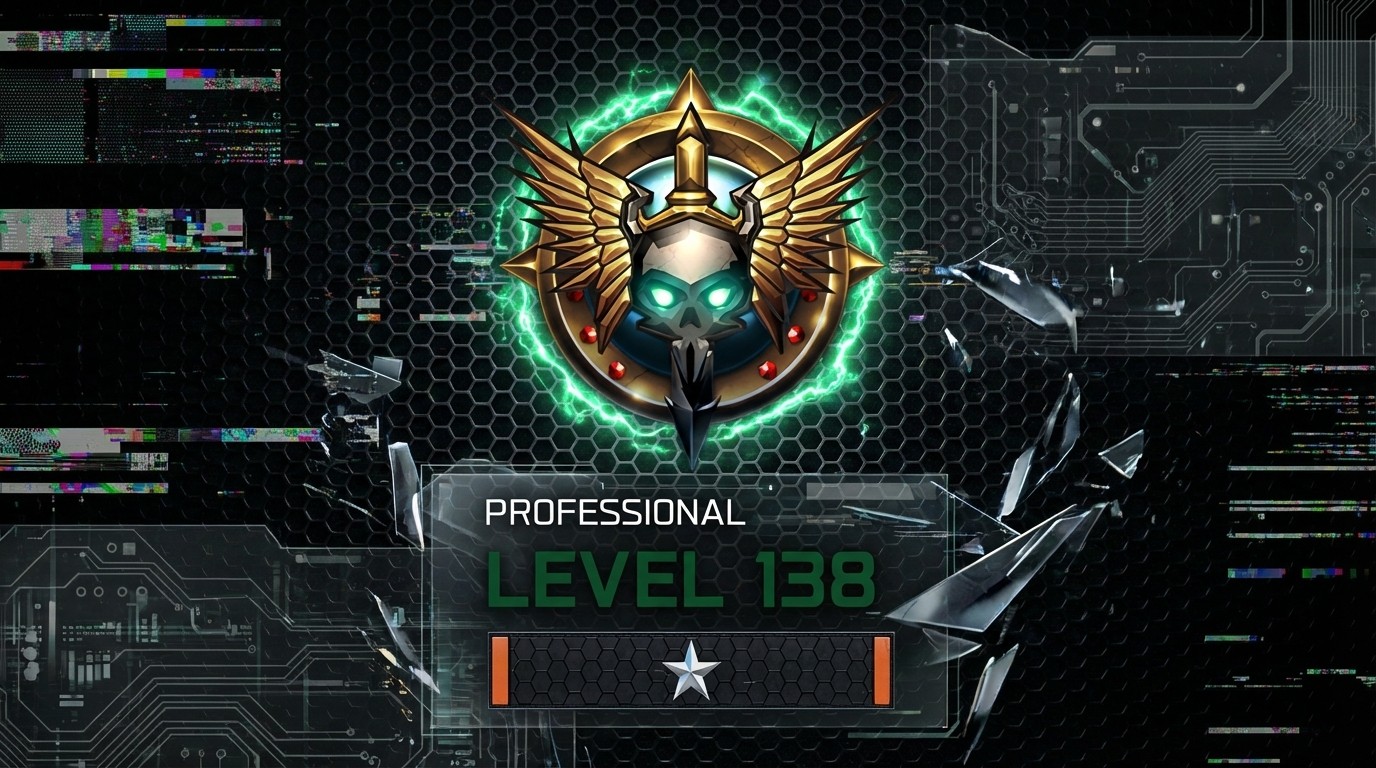Best motherboard for AMD Ryzen 9000X3D in 2024
Get ready for AMD's best Zen 5 gaming CPUS with these boards.
AMD's Ryzen 9000X3D desktop processors (CPU) are built to specifically boost gaming performance thanks to a specialized 3D vertical cache. They're expected to launch on November 7, 2024 following the release of the standard Ryzen 9000 desktop chips in August.
Like their Ryzen 7000X3D counterparts, the new 9000X3D chips are expected to be the premier option for PC gamers looking to boost framerates and overall performance compared to even the best chips currently offered by AMD and Intel.
AMD's new X870 and X870E motherboards are now available from various brands, and the older X670 and X670E boards are still available as a cheaper (though usually less feature-laden) alternative. I've put together this list of the best motherboards for AMD Ryzen 9000X3D to help you plan and begin building a proper system for the new CPUs.
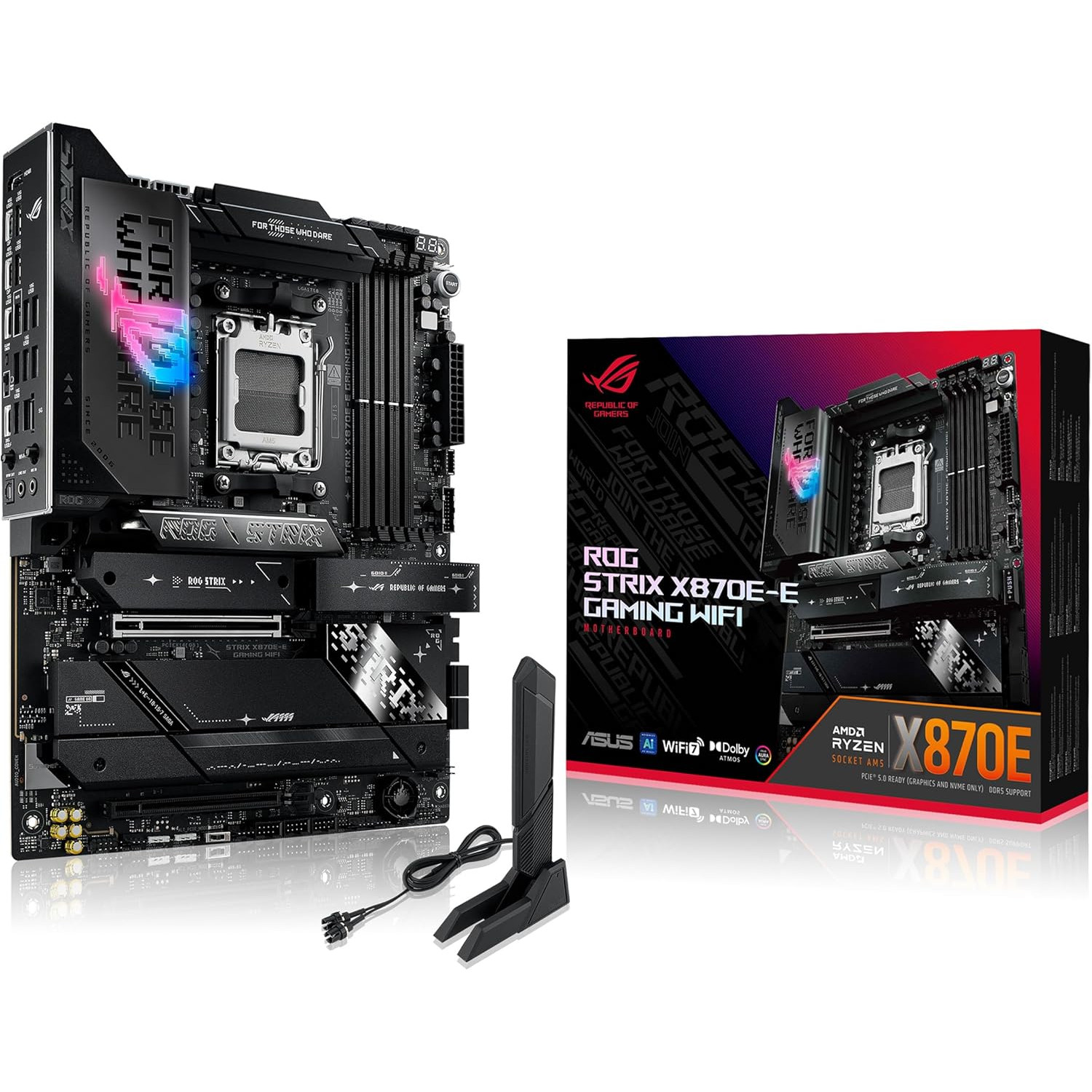
Best overall
The X870E-E Gaming WiFi is not cheap at about $500, making it a premier choice for enthusiasts. It offers 18+2+2 power phases (110A each), hefty VRM and chipset cooling, and easy overclocking with AI support. It has five M.2 slots, nine USB-A 3.2 (Gen 2) ports, multiple USB4 and USB-C, and built-in Wi-Fi 7. It even offers Dolby Atmos sound support and built-in Aura RGB lighting.
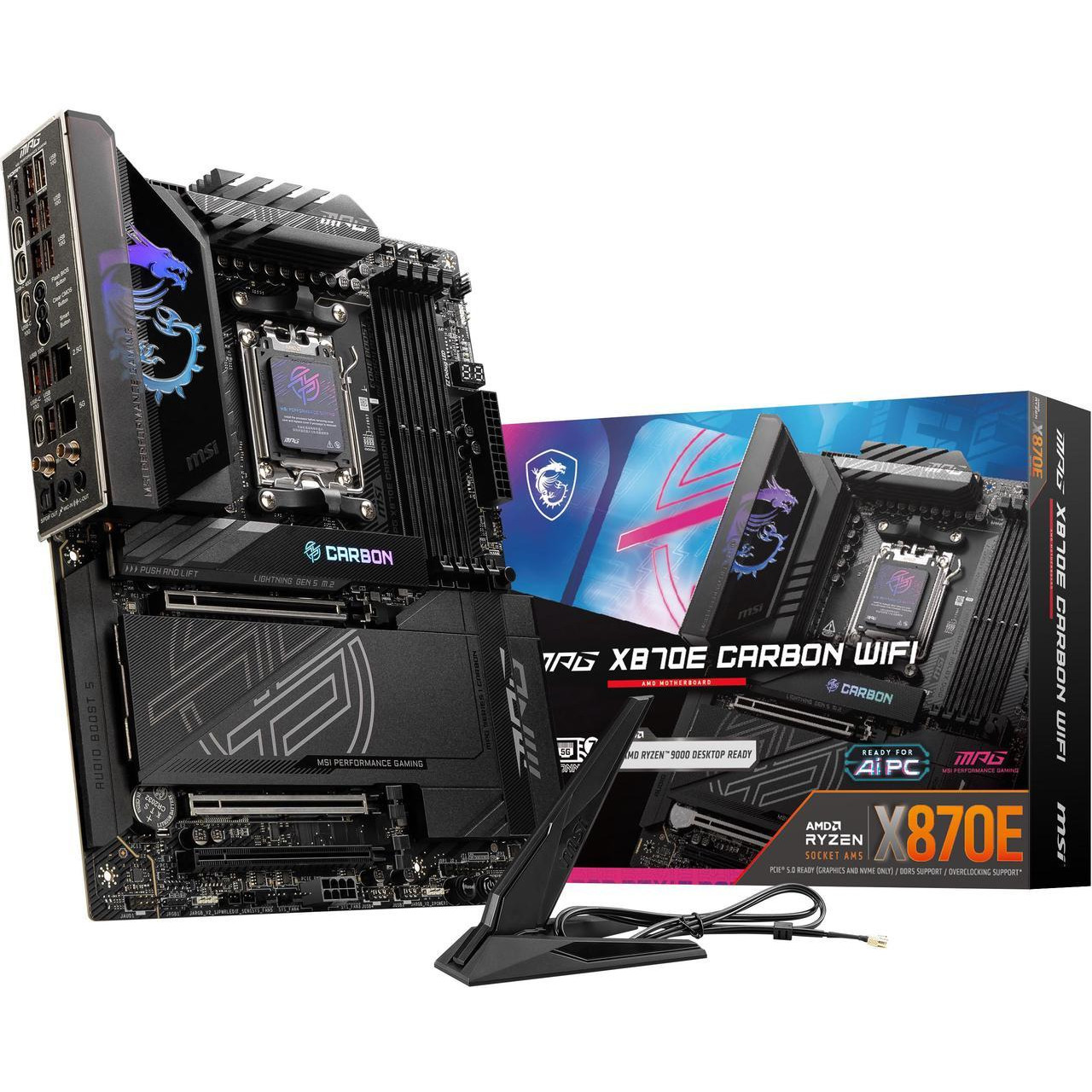
Also great
This is another board offering a ton of USB-A, USB-C, and USB4 connectivity, and it's priced similarly to my top pick at about $490. It sports 18+2+1 power phases, ample VRM and chipset cooling, four M.2 slots, Wi-Fi 7, easy overclocking, and DDR5 RAM support up to 8,400MT/s. It's a stylish board with built-in RGB lighting, and it's a great way to build for the future.
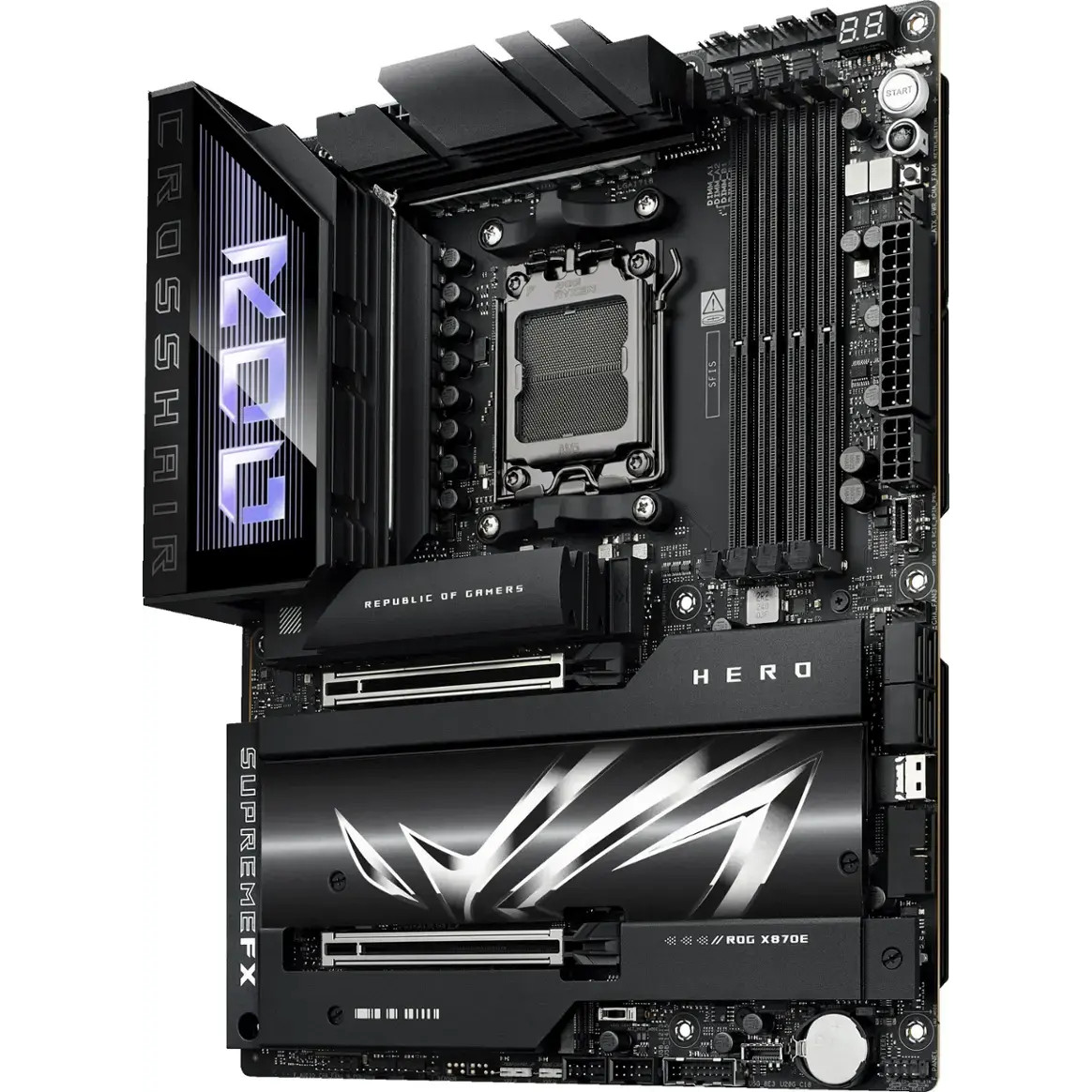
Enthusiast pick
While my top two picks are enthusiast-level boards, the ROG Crosshair X870E Hero pushes the boundaries. Coming in at about $700, this is a board for those who care more about looks than performance. Its 18+2+2 power phases and easy overclocking will push your CPU, and the dual PCIe 5.0 x16 expansion slots are an improvement over the competition. Five M.2 slots, tons of cooling, and Wi-Fi 7 round out the highlights.
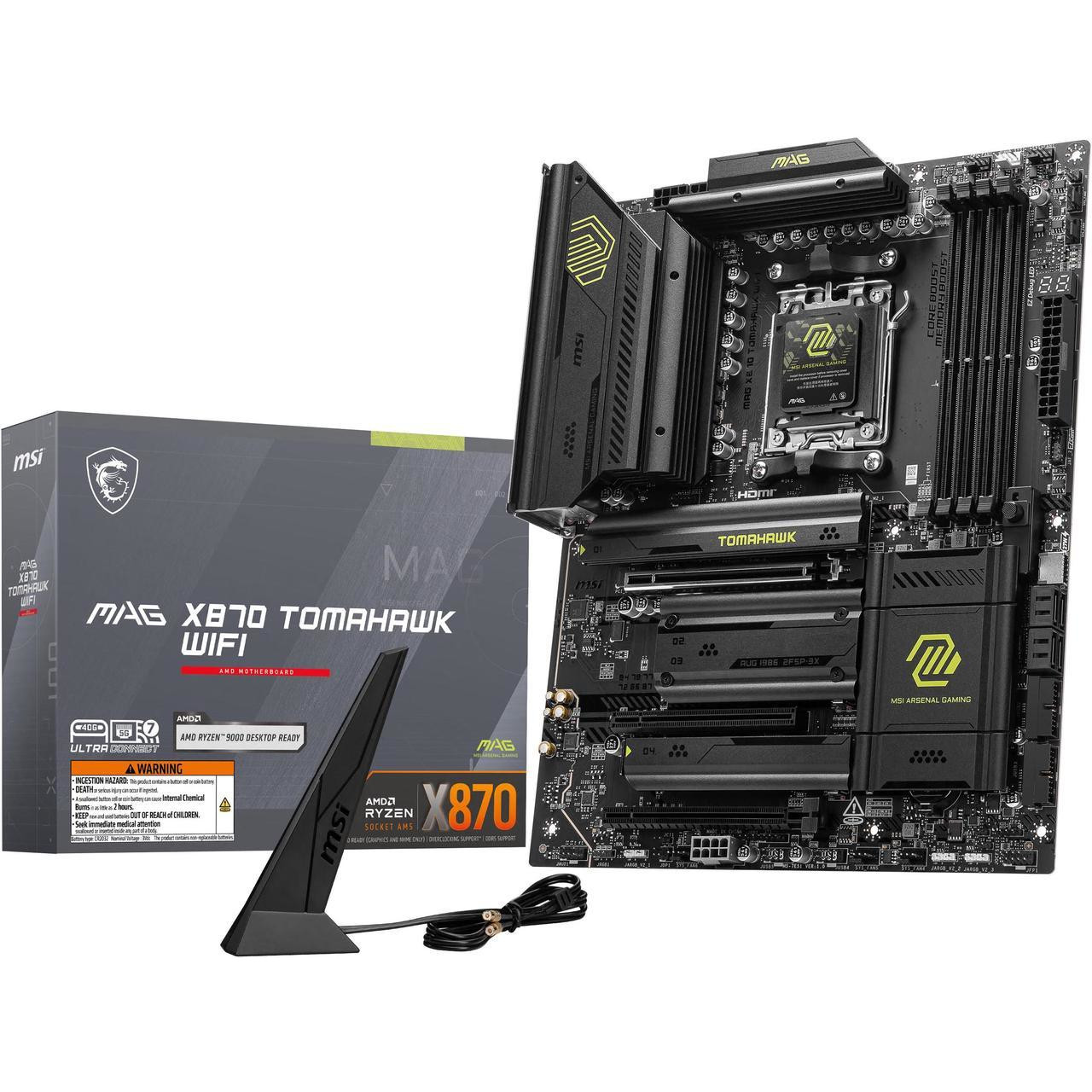
Best value
Coming in at about $290, MSI's MAG X870 Tomahawk WiFi is a perfect option if you want to spend money elsewhere in your PC. It features 14+2+1 power phases, one-click overclocking, chunky VRM and chipset cooling, and four M.2 slots. Ports include USB4, 5GbE LAN, and plenty of USB-A, with built-in Wi-Fi 7 for wireless. Newegg is currently throwing in a 500GB Samsung SSD for free when you buy.
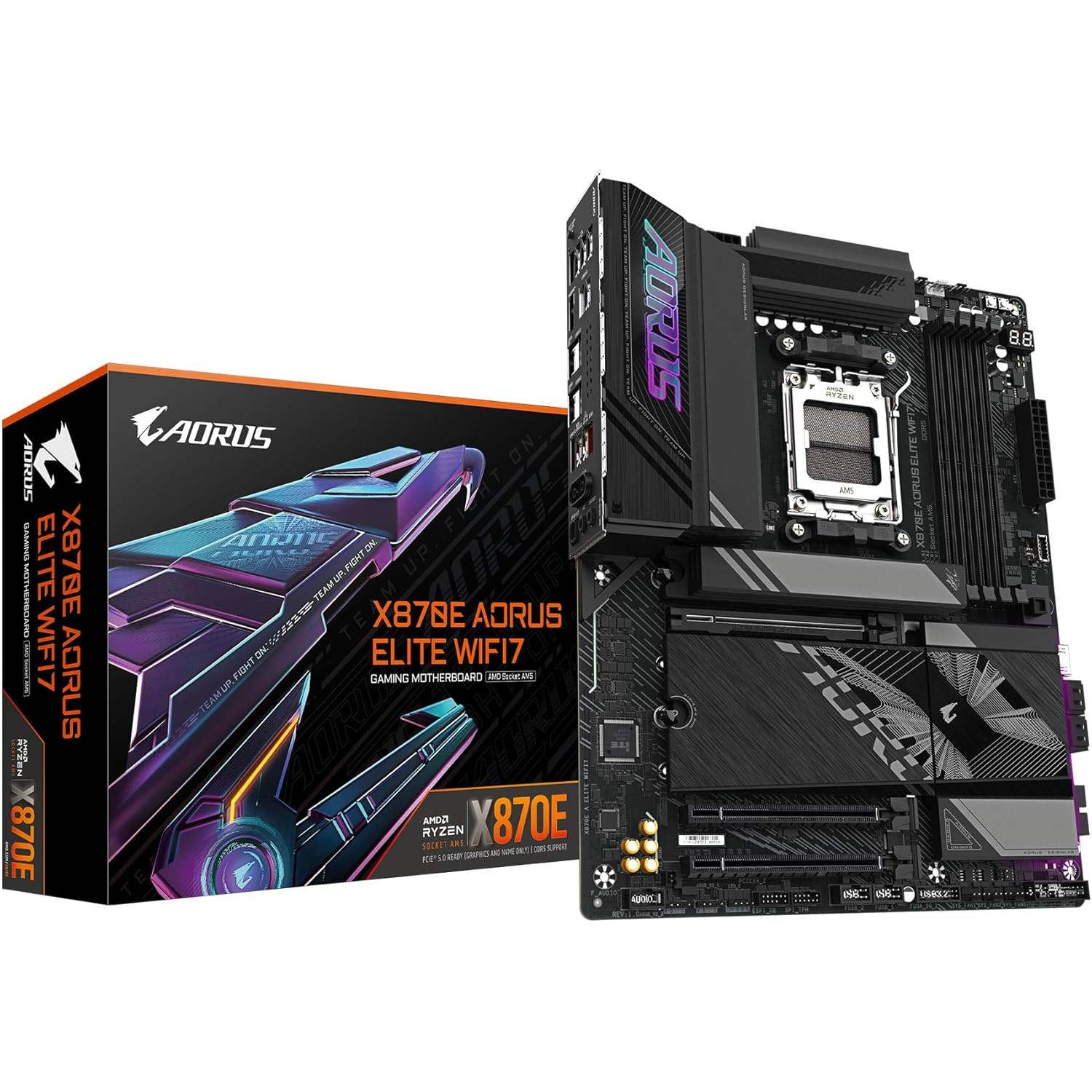
Mid-range pick
With 16+2+2 power phases, AI overclocking support, thick heatsinks throughout, and Wi-Fi 7 support, three PCIe slots (including one PCIe 5.0 x16), and four M.2 slots, spending about $320 on this board doesn't seem unreasonable. Connectivity includes USB4, 2.5GbE LAN, lots of USB-A, and built-in Wi-Fi 7. The board looks great and should be all that most users require.
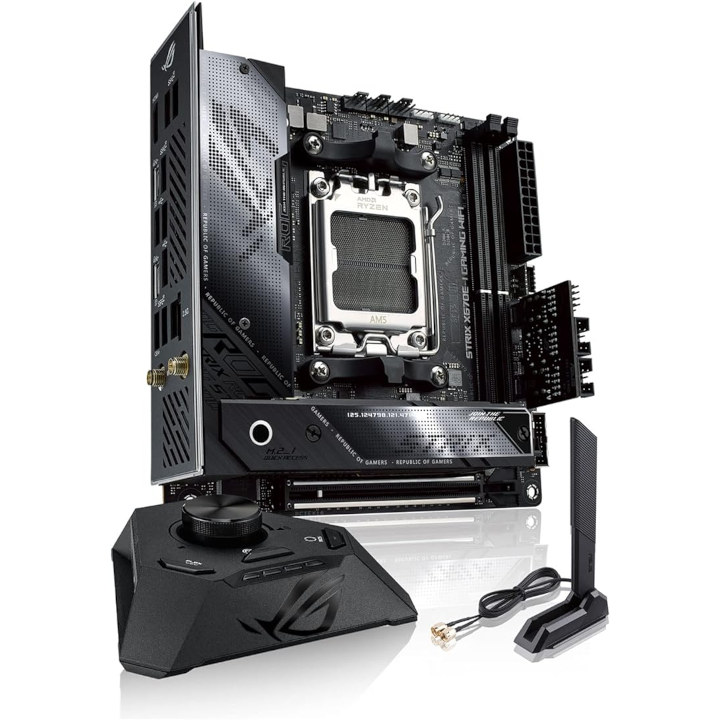
Compact pick
AMD's X870 mini-ITX boards don't yet seem to be available, but you can always rely on something like the ROG Strix X670E-I Gaming WiFi for your compact PC build. It has 10+2 power phases (110A each), as well as thick heatsinks for VRM and chipset. Two DDR5 RAM slots, two M.2 slots, and a PCIe 5.0 x16 slot will handle a standard setup. Not bad for about $425.
Getting the best motherboard for AMD's Ryzen 9000X3D processors
Why you can trust Windows Central
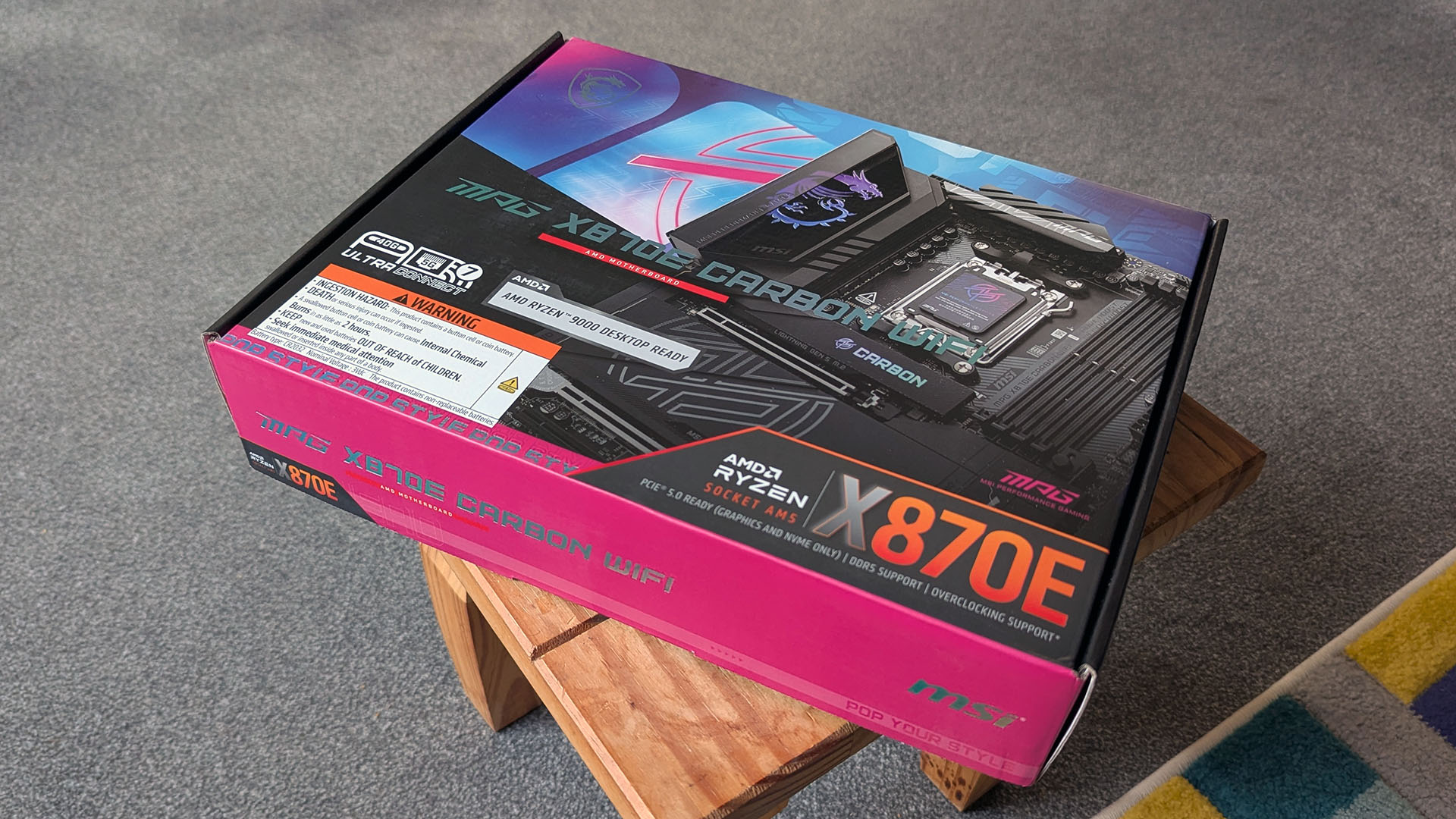
AMD's new Zen 5 Ryzen 9000X3D CPUs are expected to be the best chips for gaming for years to come. That's based on the reputation that the Ryzen 5000X3D and 7000X3D chips have forged over the years, with countless gamers swearing that they'll never go back to Intel (or even non-X3D chips) after seeing what AMD's 3D V-Cache can do.
If you already have a Ryzen 7000X3D chip using the AM5 platform (also in use by Ryzen 9000 chips), chances are you won't see a need to upgrade to Ryzen 9000X3D. However, the change will be much easier if you do want to remain on the bleeding edge, as you won't be forced to swap motherboards. A BIOS update might be necessary, but you should be able to simply swap out the CPUs.
If, on the other hand, you're still working with a Ryzen 5000 chip (like me) using the AM4 platform, you'll need to upgrade your motherboard to AM5. I've been tempted to switch to a Ryzen 7000X3D chip for some time, but I'm now glad that I waited for Ryzen 9000X3D — if the chips are anything like previous generations, they should remain relevant for years to come.
AMD's X870/X870E motherboards are quite expensive due to their recent launch, and prices should slowly come down over time. We're still waiting on the more affordable B850/B840 boards to launch (expected in early 2025), so until then, you'll have to stick with the more expensive boards if you want 800-series chipsets.
Because of the lasting power of AMD's X3D CPUs, I plan on spending a bit more on my next PC upgrade. I'm seriously considering the ASUS ROG Strix X870E-E Gaming WiFi thanks to its impressive list of high-end features, wide selection of ports, and slick look, but at about $500 I might see if I can spend some of that money elsewhere in my build.
In that case, the MSI MAG X870 Tomahawk WiFi is quite attractive. It comes in at about $290, with a feature set that's more than enough for my needs. It can overclock, it has lots of ports, Wi-Fi 7 support sets me up nicely for the future, and it looks quite sharp.
Are these motherboards compatible with non-X3D Ryzen 9000 CPUs?
These motherboards are all compatible with any of AMD's AM5 processors, including the new non-X3D Ryzen 9000 CPUs. While the chips don't include AMD's 3D V-Cache, they're still impressive chips that received Windows Central Best Awards after testing.
👀 See our full AMD Ryzen 9 9900X and 9950X review
👀 See our full AMD Ryzen 7 9700X review
I've also put together some buying guides specifically to help you find the right motherboard for AMD's Ryzen 9000 CPU.
🔎 Best motherboard for AMD Ryzen 9 9950X
🔎 Best motherboard for AMD Ryzen 9 9700X
Are AMD Ryzen 9000X3D CPUs good for gaming?
AMD's Ryzen processors with 3D V-Cache are made specifically for gaming. The tech allows AMD to stack up more L3 cache space on the CPU die, allowing the chip to rely less on slower system memory. Cache memory is much faster, effectively boosting performance in games.
For example, the Ryzen 7 7700X has 512KB of L1 cache, 8MB of L2 cache, and 32MB of L3 cache. The Ryzen 7 7800X3D, on the other hand, bumps the L3 cache up to 96MB. It's still unclear how much L3 cache the 9000X3D chips will have, but it's expected to be significantly more than the 64MB found in even the top-tier Ryzen 9 9950X.
All the latest news, reviews, and guides for Windows and Xbox diehards.

Cale Hunt brings to Windows Central more than nine years of experience writing about laptops, PCs, accessories, games, and beyond. If it runs Windows or in some way complements the hardware, there’s a good chance he knows about it, has written about it, or is already busy testing it.
